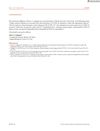 8 citations,
September 2017 in “Journal of Natural Medicines”
8 citations,
September 2017 in “Journal of Natural Medicines” Applying an extract from Perilla frutescens helps hair grow and fights the effects of hair loss hormones.
 104 citations,
October 1999 in “The Journal of Urology”
104 citations,
October 1999 in “The Journal of Urology” Finasteride doesn't harm male fertility or sperm quality, but may slightly reduce ejaculate volume.

The paper suggests that a decrease in estrogen receptor activity may cause sexual dysfunction syndromes and proposes hormonal treatments.
[object Object]  April 2021 in “Journal of the European Academy of Dermatology and Venereology”
April 2021 in “Journal of the European Academy of Dermatology and Venereology” The document corrects an author's affiliation in previous articles about COVID-19 and its links to hair loss and hormones.
 1 citations,
November 2014
1 citations,
November 2014 The document explains hair and nail biology, common hair loss conditions and treatments, oral and genital skin diseases, and the risks and treatments associated with squamous cell carcinoma.
 October 2023 in “Cognizance journal”
October 2023 in “Cognizance journal” The document suggests using natural remedies like bloodletting and honey for various health issues but lacks scientific evidence for their effectiveness.
 9 citations,
May 2021 in “Dermatologic Therapy”
9 citations,
May 2021 in “Dermatologic Therapy” Possible link between androgens and COVID-19 severity; more research needed.
January 2013 in “Acta Universitatis Traditionis Medicalis Sinensis Pharmacologiaeque Shanghai” Huoxue Bushen Mixture effectively treats female pattern hair loss by balancing hormones.
 5 citations,
January 2021 in “Biomedicine & Pharmacotherapy”
5 citations,
January 2021 in “Biomedicine & Pharmacotherapy” Policosanol helps treat hair loss by balancing hormones and supporting hair growth.
 63 citations,
August 2008 in “Journal of Cosmetic Dermatology”
63 citations,
August 2008 in “Journal of Cosmetic Dermatology” Cuscuta reflexa extract may help treat hair loss caused by hormones.
 10 citations,
February 2020 in “Endocrine”
10 citations,
February 2020 in “Endocrine” Finasteride safely treats hair loss without harming hormones or reproduction, but may slightly reduce sexual function.
 February 2008 in “Journal of The American Academy of Dermatology”
February 2008 in “Journal of The American Academy of Dermatology” ROS may affect hair loss related to hormones.
 June 2023 in “QJM: An International Journal of Medicine”
June 2023 in “QJM: An International Journal of Medicine” Nanofat injections can effectively treat hair loss caused by hormones.

Exosomes from certain stem cells can promote hair growth and counteract hair loss caused by hormones by regulating growth factors and other cellular signals.

The 1540nm fractional erbium-glass laser helps treat hair loss caused by hormones.
 January 2018 in “프로그램북(구 초록집)”
January 2018 in “프로그램북(구 초록집)” Adipocyte-derived stem cell conditioned media is effective and safe for treating hair loss caused by hormones.

The text is about acne, excessive hair growth, and hair loss due to hormones.
 January 2022 in “Indian journal of dermatopathology and diagnostic dermatology”
January 2022 in “Indian journal of dermatopathology and diagnostic dermatology” Women with diffuse hair loss often have lower iron and vitamin D levels, but their thyroid function is typically normal.
 November 2023 in “bioRxiv (Cold Spring Harbor Laboratory)”
November 2023 in “bioRxiv (Cold Spring Harbor Laboratory)” Disrupted cholesterol production impairs hair follicle stem cells, leading to hair loss.
 9 citations,
January 2015 in “Skin appendage disorders”
9 citations,
January 2015 in “Skin appendage disorders” The article suggests that the belief in common postpartum hair loss lacks sufficient evidence and may be overestimated.
 March 2023 in “International Journal of Biomedicine”
March 2023 in “International Journal of Biomedicine” Hair loss from Telogen Effluvium can be managed by treating the underlying cause and may improve with treatments like minoxidil.
 151 citations,
August 2010 in “British Journal of Dermatology”
151 citations,
August 2010 in “British Journal of Dermatology” Guidelines for diagnosing common hair loss include detailed history, clinical examination, and various diagnostic techniques.
 9 citations,
November 2019 in “Scientific reports”
9 citations,
November 2019 in “Scientific reports” The AC 2 peptide from Trapa japonica fruit helps protect hair cells and may treat hair loss.
 137 citations,
June 2005 in “Climacteric”
137 citations,
June 2005 in “Climacteric” Estrogen loss during menopause worsens skin health, but hormone replacement therapy may improve it, though more research is needed.
1 citations,
November 2023 in “Biomedicines” Menopause can cause hair thinning and texture changes due to hormonal and metabolic shifts.
 209 citations,
September 2008 in “Dermatologic Therapy”
209 citations,
September 2008 in “Dermatologic Therapy” Androgens can both increase and decrease hair growth in different parts of the body.
 6 citations,
April 2017 in “JAMA Dermatology”
6 citations,
April 2017 in “JAMA Dermatology” Men's hair loss is not linked to their sex hormone levels, except for lower DHEAS in those with hair loss.
 87 citations,
March 2011 in “Australasian Journal of Dermatology”
87 citations,
March 2011 in “Australasian Journal of Dermatology” Genetics and hormones play a role in male and female hair loss, but more research is needed to fully understand it.
[object Object] 
Baldness is often hereditary and linked to male hormones, becoming noticeable when half the hair is lost.
 11 citations,
September 2020 in “Steroids”
11 citations,
September 2020 in “Steroids” A new method accurately measures steroid hormones in a few hair strands and could help study chronic stress and hair loss.



























